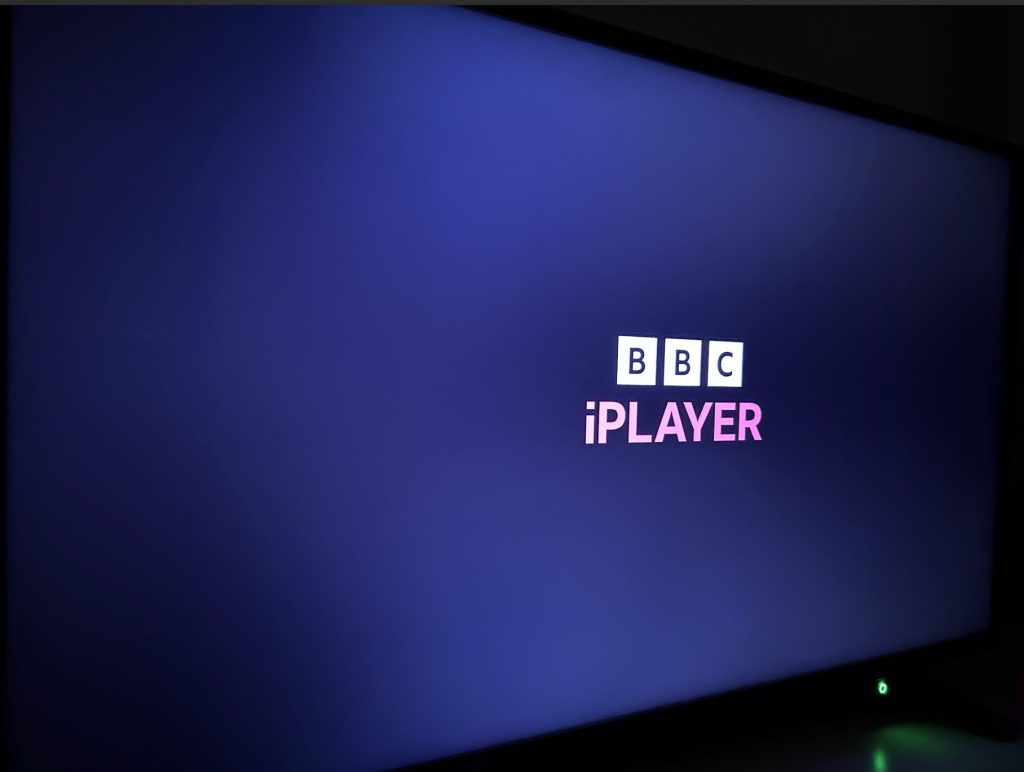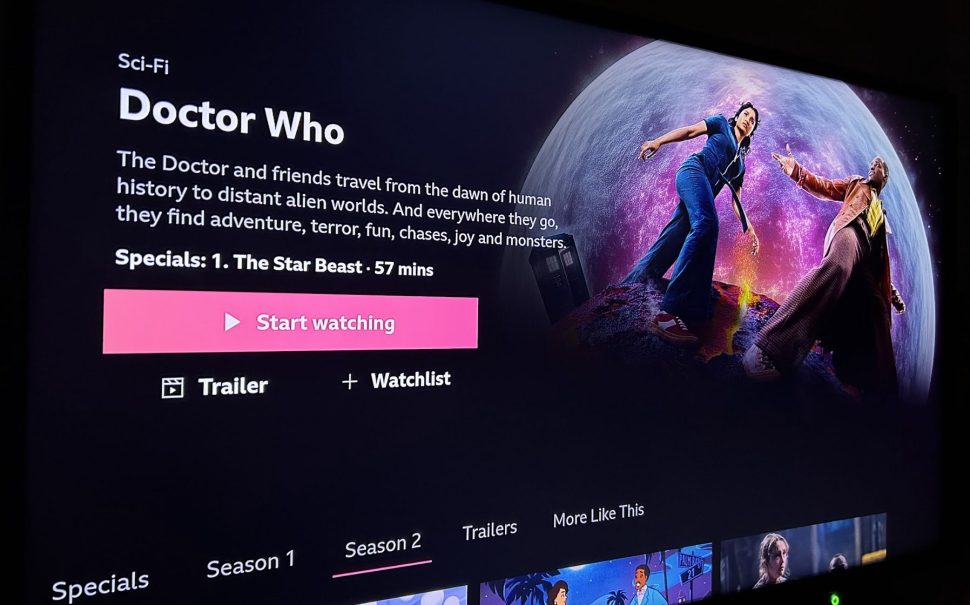With recorded ratings of the long running BBC programme at an all time low, is Doctor Who simply bad now, or is there more to it?
According to data from the Broadcasters Audience Research Board (BARB), the latest ongoing series of Doctor Who has seen the lowest recorded viewership since the show began over 60 years ago.
The graph below shows the reported viewing figures of this new era, with overnight viewing referring to views within 24 hours of the initial prime time Saturday night broadcast on BBC One.
While consolidated ratings refers to views within seven days of the broadcast, including streams on BBC IPlayer and additional streams on ‘other screens’ such as on a phone or tablet.
The five episodes so far this year have brought in an average of 1.7m overnight viewers, and an average of 3.15m total viewers, including IPlayer streams within seven days of the broadcast.
These numbers have gradually declined since this ‘new era’ of Doctor Who began merely 18 months ago, with the first four specials accumulating an average of 7.27m consolidated viewers.
Despite this undeniable drop in overnight ratings, the BBC and creative team behind the programme appear to be content with the current state of things, putting less emphasis on overnight ratings, provided the franchise finds success in other metrics.
Russell T Davies, Doctor Who showrunner, told Digital Spy: “It’s simpler and younger – and it is working.
“The under-16s and the 16-34 audience as well is massive.
“It’s not doing that well in the ratings, but it is doing phenomenally well with the younger audience that we wanted.”
In an ‘age of streaming’, the legitimacy of overnight broadcast ratings hold much less weight than they once did, and fail to show the broader picture to determine the success of a programme.
Perhaps an explanation for the low ratings of late is the ‘poor timing’ to release this latest season, what with the weather being glorious every weekend, the live broadcast time will naturally limit the number of people sitting down in front of their television – but what’s really going on?
With the launch of new Doctor Who in November 2023, the BBC made a deal with Disney, who assisted with funding towards the production of the programme in return for the right to stream the latest episodes on Disney+ internationally.
This change behind the scenes saw a drastic switch up to the scheduling of episode releases, with new episodes debuting on BBC IPlayer roughly 12 hours before the live terrestrial broadcast.
The reason being to ensure fans across the globe receive the episodes at the same time, resulting in an inconceivable number of views being discounted, even from the consolidated ratings, since these statistics fail to acknowledge those premature streams of new episodes.
Additionally, these figures discount views beyond the seven days from broadcast, meaning anyone catching up and bingeing episodes later on will not be included in these stats – a behaviour that is particularly common in the modern streaming age.
With these early IPlayer views not being represented in the ratings data, there is potentially a huge chunk of dedicated viewers watching the 8am IPlayer drop, who aren’t factored into the rating data.

Many of these dedicated fans are waking up early on Saturday mornings to catch a new episode as soon as possible to avoid spoilers, with many of them sharing mixed feelings on the new format of episode releases.
Joe Street, 22, content creator and super fan, said: “The biggest downfall of the current release strategy from a fan perspective is that it kind of kills the event feeling that used to come with a set broadcast time.
“It also makes it harder for fans to discuss the episodes together without running into spoilers.
“So while the format suits today’s media habits in theory, I do think it’s changed how the show is received and talked about, and that might be feeding into some of the more lukewarm public perception too.”
Joe (who goes by ‘Confused Adipose’ online) is one of many ‘Whovians’ concerned for the reputation of Doctor Who amongst the general public, and how these issues affect the public perception of the programme.
Joe said: “It’s definitely been interesting – and a bit frustrating – seeing how the numbers for the show have been interpreted currently.
“One of the most important things for any show in my opinion is positive word of mouth – it’s why last season flopped I think.
“I worry that the general public may not be willing to give Doctor Who another try – how many reboots is too many?”
With low ratings and a parade of negativity being fired from all cylinders towards Doctor Who from many online, how can the BBC keep Doctor Who afloat?
Joe said: “I’m sure the BBC don’t particularly look at overnights as a measure of success any more – It’s about what brings people to their platforms or makes people spend money, something Doctor Who does a lot of.
“I’ve got many friends who say they’ll catch up with it once the whole series is done, so as long as the finale pulls through I’m sure many others will do the same.
“I believe this season will keep steadily growing in viewing figures as time goes on because it’s been well received by fans.”
So much appears to be true, as despite the record low ratings, data shows that those who are tuning in seem to be enjoying their time.
The graph below shows ‘Audience Appreciation Index’ data, designed to convey audience enjoyment of an episode of television, scaling from 0-100 with scores over 80 considered ‘high quality’.
Christel Dee, 33, content creator and super fan, said: “I’m really enjoying this season – It’s no secret that mainstream viewership has dropped over the past 10 years, especially towards the tail end of Matt Smith’s era.
“Ncuti Gatwa’s era has been fairly strong but I think the damage from the past decade means a lot of mainstream viewers have lost interest or aren’t giving it a chance.
“8am is also a weird time to put it on as it feels more like a show you’d watch with family on the sofa of an evening rather than over breakfast.
“With streaming, at least everyone’s in the same boat and you’re not missing out because you can watch when you want, but the downside is missing that excitement of it playing out in real time and there’s less chance for live conversations, reactions and memes.
“I still think event TV works really well.”
William Carlisle, 32, tv industry professional, described a ‘huge global shift’ towards streaming since the Covid-19 pandemic and subsequent ‘lockdowns’.
Carlisle said: “In my eyes, that’s what brought the shift to streaming up a few gears, as everyone was locked indoors with more free time – so even your nan had time to get on Netflix or sign up to Disney+.”
He highlighted Netflix’s ‘Adolescence’, which recently became the first streaming show to hit #1 show of the week in terms of BARB ratings, which William described as ‘a pivotal moment in the transition from linear to on-demand’.
He highlighted how Doctor Who is still out-performing its sci-fi competitors on streaming, such as Netflix’s ‘Black Mirror’ or the various ‘Star Wars’ shows on Disney+, proving it can hold its own in an ever changing landscape.
“I have young family members who don’t even watch linear TV – that’s a major, generational shift from myself, who would put CBBC on after school and just watch whatever was on,” he added.
Ultimately, it is clear there are multiple factors at play when looking at the viewing figures for the latest run of Doctor Who episodes, and ‘who’ knows where the show will go from here, with no current plans for further episodes beyond the ongoing season.
‘Share’ statistics from BARB indicate that there was once a time when more than of households in the UK would tune into Doctor Who, but with viewing figures now lower than 1989 – the year the programme was first cancelled for low ratings – will Doctor Who disappear once again for another hiatus?
William (or ‘MrTARDIS’ online) said: “I think there’s some growing-pains as Doctor Who tries to figure out what it should be in an age of streaming and with a higher budget, and it doesn’t quite know whether or not it wants to try and find new viewers, or continue to engage and tease those who have been watching for 20 years or more.
“Doctor Who has, over the past five weeks, routinely been the #1 show broadcast on the BBC over the weekend, with no show getting more than two million overnights, period.
“That indicates a broader trend working against television right now – as opposed to the notion of ‘something wrong with Doctor Who’ specifically.”
Main image credit: BBC iPlayer





Join the discussion